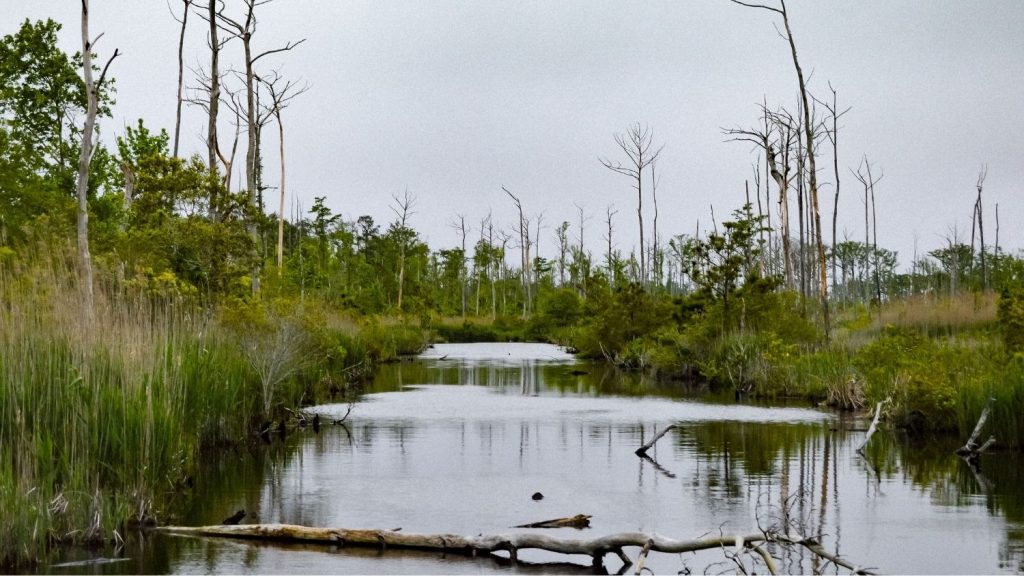 A new study found the spread of ghost forests across a coastal region of North Carolina may have implications for global warming. Ghost forests are areas where rising seas have killed off freshwater-dependent trees, leaving dead or dying white snags standing in marsh. The study found that the transition from forest to marsh along the coastline of the Albemarle-Pamlico Peninsula led to a significant loss in the amount of carbon stored in the plants and trees above ground. …“Many people think about sea-level rise as being more of a long-term threat,” said the study’s lead author. “But we’re actually seeing significant changes over shorter time periods because of this interaction between gradual sea-level rise and extreme weather events.” …they also saw that the losses at the coast were offset by tree plantings in forests grown for timber during the study.
A new study found the spread of ghost forests across a coastal region of North Carolina may have implications for global warming. Ghost forests are areas where rising seas have killed off freshwater-dependent trees, leaving dead or dying white snags standing in marsh. The study found that the transition from forest to marsh along the coastline of the Albemarle-Pamlico Peninsula led to a significant loss in the amount of carbon stored in the plants and trees above ground. …“Many people think about sea-level rise as being more of a long-term threat,” said the study’s lead author. “But we’re actually seeing significant changes over shorter time periods because of this interaction between gradual sea-level rise and extreme weather events.” …they also saw that the losses at the coast were offset by tree plantings in forests grown for timber during the study.